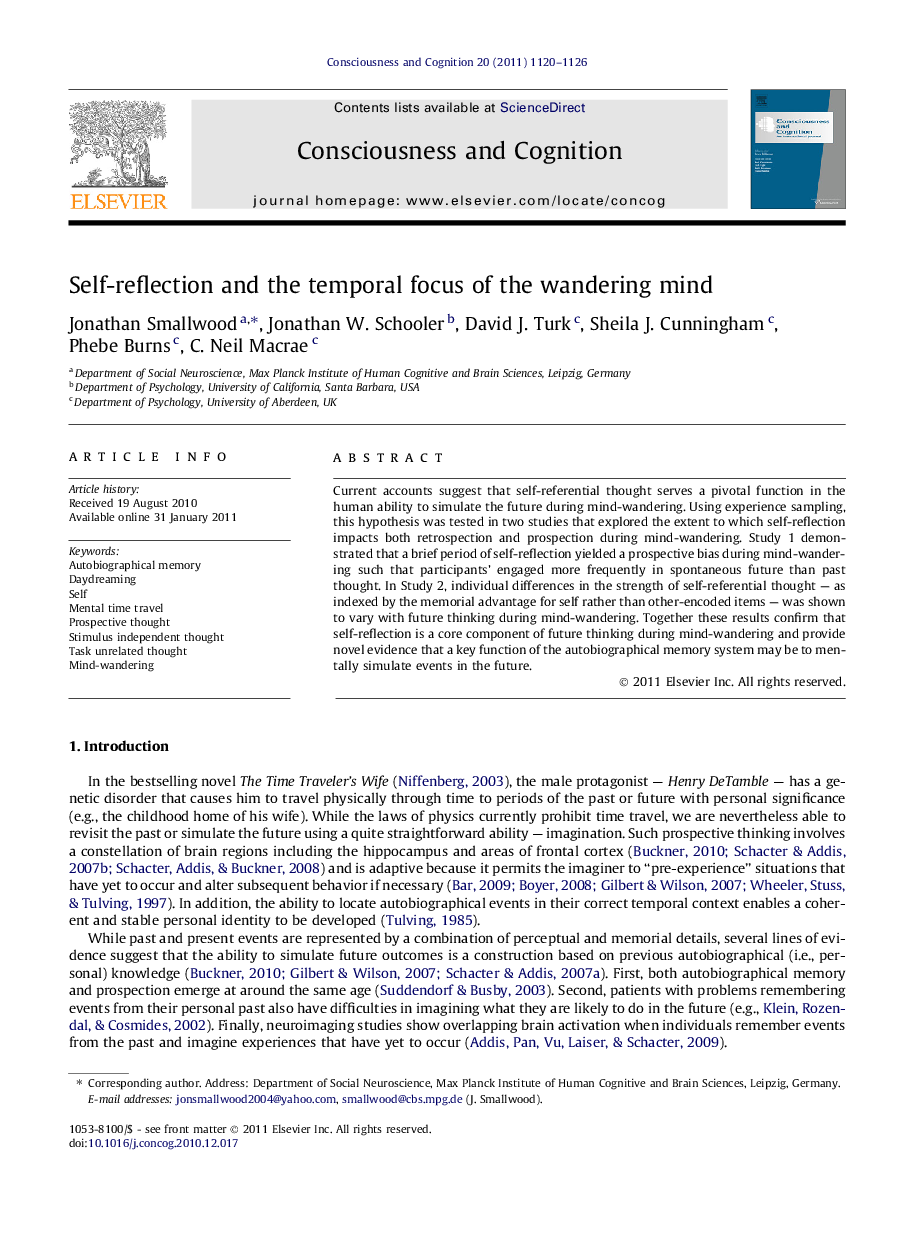| Article ID | Journal | Published Year | Pages | File Type |
|---|---|---|---|---|
| 7290319 | Consciousness and Cognition | 2011 | 7 Pages |
Abstract
Current accounts suggest that self-referential thought serves a pivotal function in the human ability to simulate the future during mind-wandering. Using experience sampling, this hypothesis was tested in two studies that explored the extent to which self-reflection impacts both retrospection and prospection during mind-wandering. Study 1 demonstrated that a brief period of self-reflection yielded a prospective bias during mind-wandering such that participants' engaged more frequently in spontaneous future than past thought. In Study 2, individual differences in the strength of self-referential thought - as indexed by the memorial advantage for self rather than other-encoded items - was shown to vary with future thinking during mind-wandering. Together these results confirm that self-reflection is a core component of future thinking during mind-wandering and provide novel evidence that a key function of the autobiographical memory system may be to mentally simulate events in the future.
Keywords
Related Topics
Life Sciences
Neuroscience
Cognitive Neuroscience
Authors
Jonathan Smallwood, Jonathan W. Schooler, David J. Turk, Sheila J. Cunningham, Phebe Burns, C. Neil Macrae,
